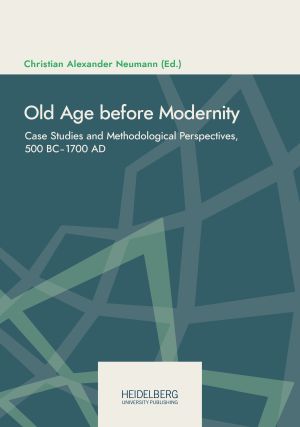Zitationsvorschlag
Lizenz (Kapitel)

Dieses Werk steht unter der Lizenz Creative Commons Namensnennung - Nicht-kommerziell - Keine Bearbeitungen 4.0 International.
Identifier (Buch)
Veröffentlicht
“ein krücke was sîn stiure”. Literary Perspectives on Old Age and Disability in Medieval Courtly Romances (“Eneas”, “Erec”, “Iwein”/“Yvain”)
Abstract Old age and the process of ageing have received a lot of attention in recent research on medieval literature, mainly in historical studies on rhetoric, topoi, genealogy and gender. My paper focuses on ageing and old age as a relevant subject for premodern literary disability studies. Elderly characters in medieval literature appear to be in a complex situation between ability as a positive mark of distinction and privilege (honouring their wisdom and experience) and disability as impairment, weakness, and privation that may cause a general handicap in human life. After an overview my paper focuses on elderly characters in selected romances by Heinrich von Veldeke (“Eneasroman”), Hartmann von Aue (“Erec”1 and “Iwein”), and their Old French sources. Even though the elderly figures in medieval vernacular narratives usually play rather marginal roles in the plot, they are connected to important subjects such as intergenerational relationships, succession to the throne, (lack of ) physical strength in battle, experience, wisdom, and the (un)willingness to step back behind the younger characters.






